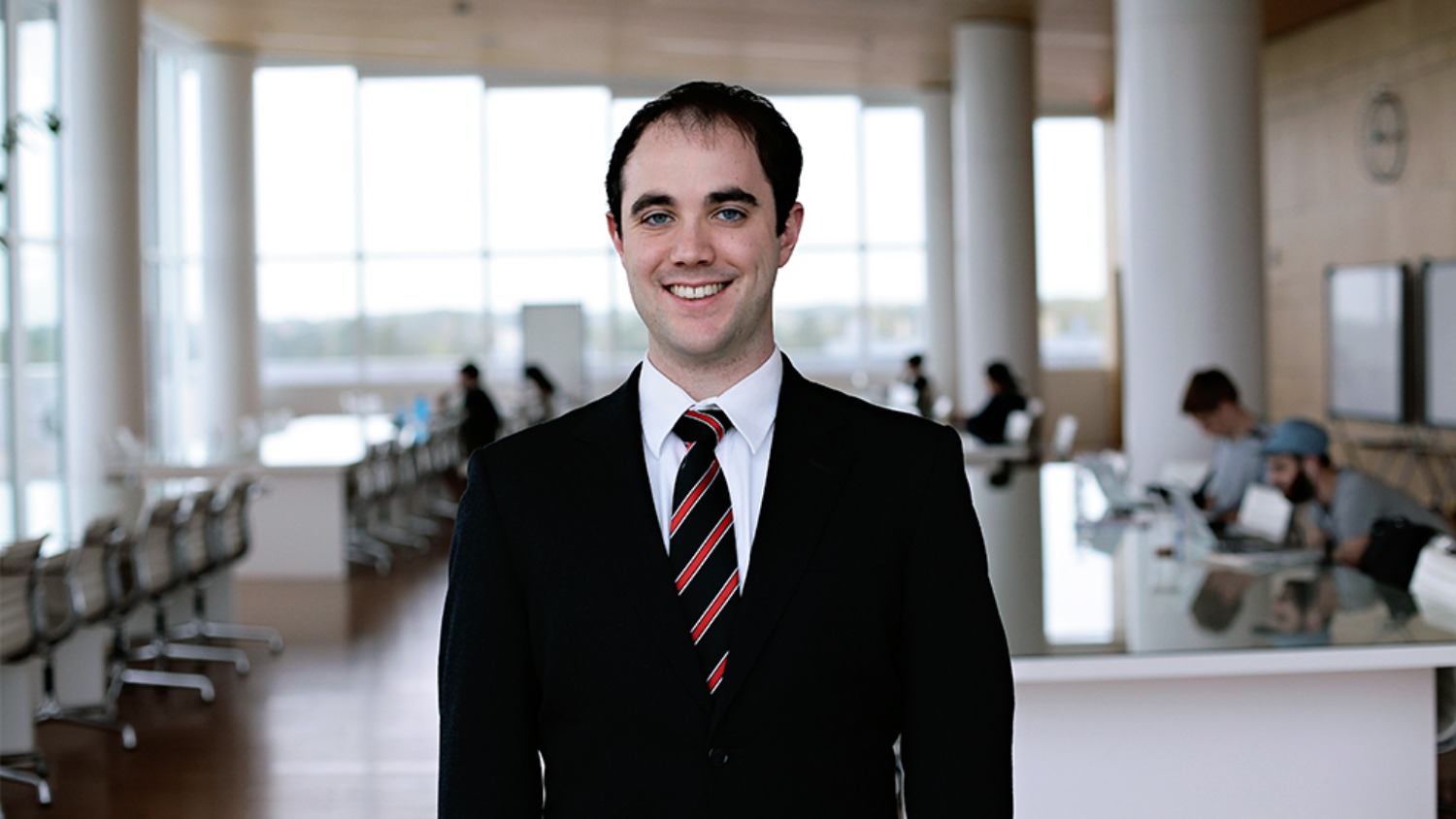NC State Alum Chase Pfendler (‘15) Found Work and Love in the Wilson College of Textiles

Written by Cameron Walker
By the time Wilson College of Textiles alumnus Chase Pfendler graduated in 2015 with degrees in both polymer and color chemistry and chemical engineering, he had already lined up his first job — and found the love of his life.
As chemicals production engineer at Celanese Corporation, a global technology and special materials company, he is responsible for daily operations of the chemicals unit of the Bishop, Texas plant, which produces formaldehyde and paraformaldehyde polymer.
“Ultimately, I can be held accountable for everything that happens in my unit,” he said. “I oversee process and occupational safety in my unit, ensure compliance with environmental permits and regulations, coordinate production rates with our business team, and organize maintenance and project work.”
He credits his education in the COT with much of his success, and said it helped him learn “to value your team, to be enthusiastic, to ask plenty of questions, to examine problems from all angles, to always ask what lab method was used to attain your analytical chemistry results, and to always have fun!”
Before moving to the Lone Star state, Pfendler worked his first post-college job as a process improvement engineer at the Celanese plant in Narrows, Va. He learned about the position at the NC State Engineering Career Fair in the fall of 2014; by the end of the week, he had interviewed with representatives from the company and was offered the job soon after.
He believes the biggest differences between being in college and working in industry are the results people are looking for from a project and the way those results are communicated.
“The skills you learn in college lay the foundation for how to attack opportunities in industry.”
“In college, you are typically working on something with a known solution, and all of your classmates are working on the same thing, too,” he said. “In industry, you are typically being asked to champion a project where there may be little to no information available. You must leverage the support of others to create new knowledge and implement new processes…There are very few tasks where you will be merely expected to demonstrate an ‘on-paper’ solution. The skills you learn in college lay the foundation for how to attack opportunities in industry.”
Pfendler also knows how to seize opportunity in his personal life. On Oct. 8, 2016, as Hurricane Matthew battered the Carolina coast, he married fellow Wilson College alumna Kristie Buchanan Pfendler (Fashion and Textile Management 2015) in Nashville, North Carolina.

“Despite flickering lights and howling winds, our day was still beautiful thanks to some good friends,” he said. “Scott Schreiner (Textile Engineering 2014) and Caroline Carrier (FTM 2015) were in the wedding party, Cassia McKay (FTM 2013) coordinated the wedding, and Brandon Alley (Textile Technology 2008) was our DJ. I always saw the Wilson College of Textiles as a small family within a larger university. Across all degrees at the Wilson College of Textiles, you will find some of the most talented, well-rounded, and friendliest people at NC State!”
Pfendler is a founding member of the Goodnight Scholars Alumni Council. He and his wife now live in the coastal town of Corpus Christi, Texas, where they enjoy eating seafood, relaxing on the beach and playing water sports. Kristie Pfendler worked in advertising before their recent move and is currently searching for another position while training their newly adopted rescue husky puppy, Kylo.
He shared some advice for students and graduates planning their career trajectory.
“If you are looking only at the money, you will always be chasing the wrong thing,” he said. “The work-life balance and location of a job can sometimes mean more to your overall success and well-being than anything else. It is impossible to plan out your whole life right out of school, but always try to think about your next step when you are applying to a job. Think, ‘what skills do I hope to gain here that I can use in my next role at this company or another? Where in the country would I like to live most of my life? What direction is this company headed in the coming years?’ You will almost certainly not finish your career working the same job in the same location, so what (and when) is next? All that being said, don’t be so picky that you sacrifice a good opportunity in the hope of finding a perfect opportunity. ‘Perfect’ doesn’t exist!”
- Categories:


